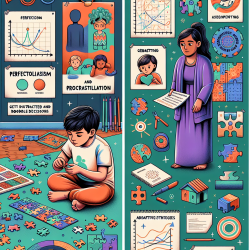Introduction
As practitioners in the field of speech-language pathology, we often rely on research published in high-impact medical journals to guide our clinical decisions and improve outcomes for our clients, particularly children. However, the integrity of these research findings can be compromised by undisclosed conflicts of interest (COIs). A recent study titled A cross-sectional examination of conflict-of-interest disclosures of physician-authors publishing in high-impact US medical journals sheds light on the prevalence of undisclosed financial COIs among physician-authors. This blog explores the implications of these findings for practitioners and emphasizes the importance of transparency in research.
Understanding Conflict of Interest
COIs arise when personal or financial interests have the potential to influence professional judgment. In the context of medical research, COIs can lead to biased results, which may affect clinical practice guidelines and ultimately patient care. The study examined COI disclosures among physician-authors who published in the New England Journal of Medicine (NEJM) and the Journal of the American Medical Association (JAMA) in 2017, revealing significant discrepancies between self-reported disclosures and financial data from the Open Payments database.
Key Findings
- Out of 118 physician-authors, 106 received payments, with 81.1% having undisclosed payments.
- The top 23 most highly compensated authors received 84.5% of all payments, with nearly half of these payments undisclosed.
- No significant difference was found in COI disclosure rates between NEJM and JAMA authors, despite differing disclosure processes.
Implications for Practitioners
The findings underscore the need for practitioners to critically evaluate research sources and consider potential COIs when interpreting study results. As practitioners, we must advocate for transparency in research to ensure that clinical decisions are based on unbiased evidence. This involves:
- Encouraging journals to adopt stricter COI disclosure policies.
- Utilizing resources like the Open Payments database to verify COI disclosures.
- Engaging in continuous education on the ethical considerations of COIs in research.
Encouraging Further Research
While this study provides valuable insights, further research is needed to explore the impact of undisclosed COIs on clinical practice and patient outcomes. Future studies should consider larger sample sizes, include a broader range of journals, and examine non-financial COIs, which can also influence research integrity.
Conclusion
As practitioners dedicated to improving outcomes for children, it is imperative that we remain vigilant about the integrity of the research we rely on. By advocating for transparency and engaging in ethical research practices, we can contribute to a more trustworthy and effective healthcare system.
To read the original research paper, please follow this link: A cross-sectional examination of conflict-of-interest disclosures of physician-authors publishing in high-impact US medical journals.










